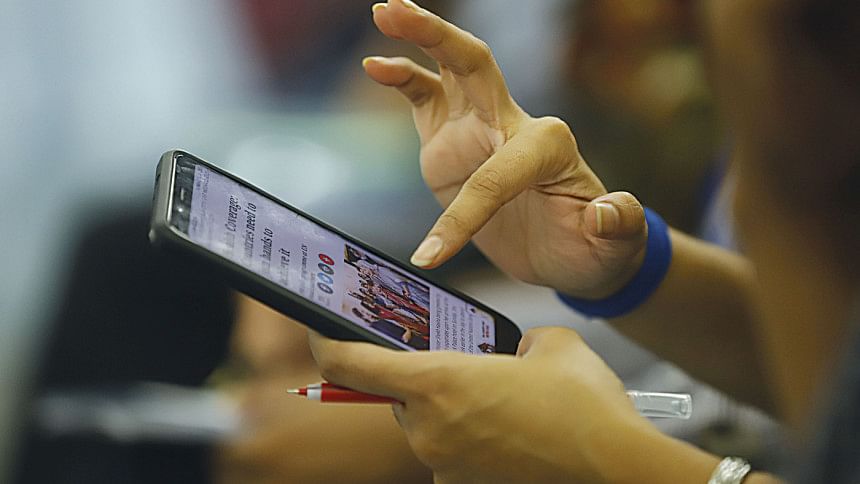Implement mechanism to identify illegal handsets

Local mobile manufacturers yesterday demanded the activation of the National Equipment Identity Register (NEIR) as illegal and informal channels currently capture about 35 to 40 percent of the overall handset market in Bangladesh.
Introduced by the Bangladesh Telecommunication Regulatory Commission in 2021, NEIR aims to ensure the use of legitimate mobile devices in the country by linking their IMEI number to the customer's national identification and SIM numbers.
But the crucial functions of the system, such as blocking fake, unauthorised, or cloned handsets, are not yet operational. The government has also not initiated the blocking of illegally-imported mobile phones.
The import duty on complete handsets is around 58 percent, but illegally imported phones are flooding the market as they are brought over without paying any taxes.
However, local manufacturers have to pay many different forms of taxes from eight percent to over 20 percent and various licensing fees.
As a result, newly-established factories are having a hard time despite investing crores of taka, said Jakaria Shahid, president of the Mobile Phone Industry Owners' Association of Bangladesh (MIOB).
He was speaking at a press conference organised by the MIOB.
Shahid said they have long demanded the activation of NEIR and that Zunaid Ahmed Palak, Minister of State for Posts, Telecommunications and Information Technology, had informed them that that NEIR would be activated.
"However, we haven't seen any effort to activate it yet," he said.
He added that prior to 2018, all mobile handsets in Bangladesh were imported.
But as the government provided incentives, major importers gradually established local factories. So far 17 mobile handset factories have been established and 99% of the local demand for handsets is met through official channels.
But due to a spike in illegal imports of handsets, local mobile factories are facing serious challenges, he added.
"It is very difficult to compete with illegally imported handsets because they evade taxes. There are many regulations and high licence fees imposed by BTRC on legal factories. Illegal importers are not subject to these. And the government is losing huge sums of tax in the absence of NEIR."
Customers are buying low-quality and sometimes refurbished handsets that do not offer any warranty while many crimes are also committed with illegally-imported handsets, he said, adding that one of the major objectives of NEIR is to help law enforcment combat such crimes.
The demands of the association come at a time when
The local production of handsets dropped in 2023, the first decline since domestic manufacturing began in Bangladesh in 2017, owing to the higher price of US dollars, an increase in taxes, the expansion of the grey market, and lower sales amid an erosion of consumers' purchasing power.
Domestic firms produced 2.33 crore mobile phones in the January-December period last year, down 26.35 percent from the 3.17 crore units manufactured in the same period a year earlier, according to the BTRC.
Industry people say external and internal crises have combined to hurt the local mobile manufacturing industry. Besides, the restriction in opening letters of credit (LCs) has impacted the entire supply chain.
Shahid also demanded a long-term taxation policy so that they could invest with confidence.
Rezwanul Hoque, vice-president, Md Mesbah Uddin, general secretary, and Md Zohorul Haque Biplob, joint secretary, were also present.

 For all latest news, follow The Daily Star's Google News channel.
For all latest news, follow The Daily Star's Google News channel. 








Comments